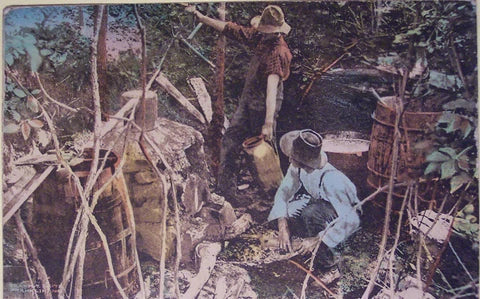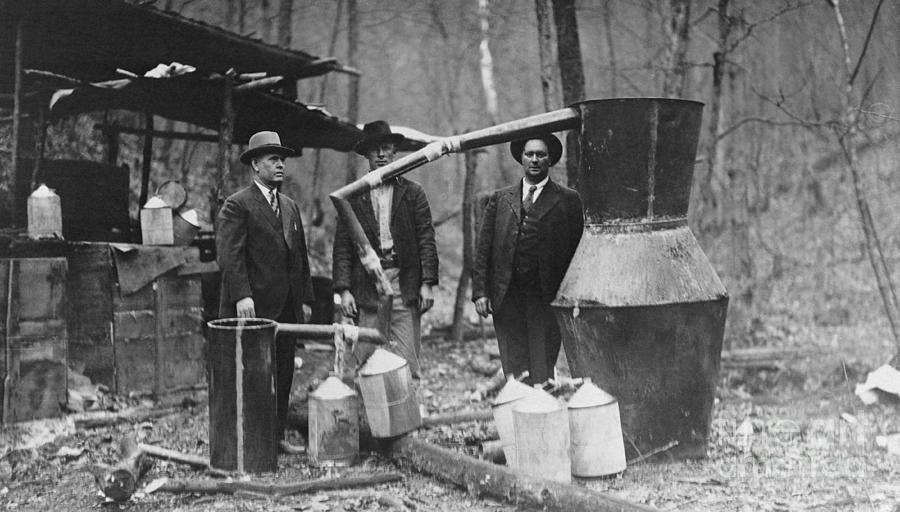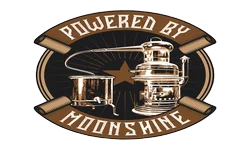Are Stills Illegal in the US: What the Law Says and 4 Key Facts

Article-at-a-Glance
- Owning a still of any size is legal in the US for specific purposes like decoration, distilling water, or essential oils, but using it to produce alcohol requires proper federal permits.
- Federal law makes an important distinction between still ownership (legal) and operating a still to produce consumable alcohol without permits (illegal).
- State laws regarding still ownership and operation vary significantly, with some states imposing stricter regulations than federal requirements.
- The Alcohol and Tobacco Tax and Trade Bureau (TTB) oversees still registration and permits, not the size or location of stills used for legal purposes.
- Home distillers can legally operate with a Federal Fuel Alcohol Permit for producing non-consumable alcohol fuel, offering a legitimate pathway for enthusiasts.
The world of home distillation is wrapped in misconceptions and half-truths, especially when it comes to the legality of owning and operating stills in the United States. Despite what you might have heard from well-meaning friends or read in online forums, the laws around still ownership aren’t as straightforward as “they’re all illegal.” Understanding the nuances between federal and state regulations can save you from potential legal headaches while allowing you to pursue your interest in distillation.
At Moonshine University, we’ve helped thousands of distillation enthusiasts understand their legal rights and responsibilities. The truth is that still ownership itself isn’t prohibited – it’s how you use it that determines legality. This distinction is crucial for anyone interested in the craft, whether for producing essential oils, water purification, or exploring the possibility of legal alcohol production.
Let’s clear up the confusion and set the record straight on what US law actually says about still ownership, registration requirements, and how to stay on the right side of the law while pursuing your distillation interests.
The Truth About Still Ownership in the US

“Law and Distilling Alcohol …” from www.whiskeystillpro.com and used with no modifications.
Contrary to popular belief, federal law does not prohibit the ownership of distillation equipment. You can legally purchase, possess, and own a still of any size in the United States. The Alcohol and Tobacco Tax and Trade Bureau (TTB), a division of the US Treasury Department, oversees regulations related to distillation equipment. Their focus isn’t on banning stills but regulating their use for alcohol production.
The confusion typically stems from conflating ownership with operation. While you can own a still, using it to produce consumable alcohol without proper permits and licensing is where you cross into illegal territory. This distinction allows collectors, craftspeople, and those interested in non-alcoholic distillation to legally possess distillation equipment.
The legal landscape becomes more complex when state laws enter the picture. While federal law permits still ownership, individual states may impose additional restrictions or requirements. Some states have outright bans on still possession regardless of intended use, while others align with federal regulations or have their own permitting processes.
Federal Law on Stills: What’s Actually Legal

“Moonshine Still by Bettmann” from photos.com and used with no modifications.
Under federal law, still ownership is governed primarily by the TTB through regulations derived from the Internal Revenue Code. These regulations focus on registration and intended use rather than prohibiting ownership. According to federal law, anyone who possesses distillation equipment “capable of distilling alcohol” must register the still with the TTB. This registration is separate from the permits required to actually produce distilled spirits.
Still Registration Requirements
The TTB requires registration of stills regardless of size or intended use through Form 5110.74 (Registration of Distilled Spirits Plants). This form asks for basic information about you and your still, including its location and capacity. Registration is a simple process that doesn’t require fees but serves as notification to the government about your possession of distillation equipment. It’s important to note that registration doesn’t grant permission to produce alcoholic spirits – it merely documents your ownership of the equipment.
Legal Purposes for Owning a Still
Federal law recognizes several legitimate purposes for still ownership beyond alcohol production. Distilling water, essential oils, perfumes, and fuel alcohol are all considered legal uses. Many home distillation enthusiasts legally operate stills for these purposes without running afoul of federal law. Educational and decorative purposes are also recognized as legitimate reasons to own distillation equipment. For those interested in the production of moonshine, understanding how much whiskey a still can produce can be essential knowledge.
For those interested in distilling water or essential oils, no additional permits are required beyond basic registration. This makes these activities particularly accessible for hobbyists who want to explore distillation without navigating the more complex alcohol production regulations.
Legal Uses for Stills Under Federal Law
• Distilling water for purification
• Producing essential oils and herbal extracts
• Creating perfumes and aromatherapy products
• Producing fuel alcohol (with proper permit)
• Educational demonstrations and research
• Decorative or collector’s items
Federal Permits and How to Get Them
If your interest extends to alcohol production, two main federal permits are relevant: the Distilled Spirits Permit (DSP) and the Federal Fuel Alcohol Permit. The DSP is required for anyone producing spirits for consumption and involves a rigorous application process, significant fees, and ongoing compliance with federal regulations. This permit is typically pursued by commercial distilleries rather than hobbyists due to the substantial requirements and costs involved.
4 Key Facts About Still Legality Everyone Should Know

“Key Facts: Over 1,001 Royalty-Free …” from www.shutterstock.com and used with no modifications.
When it comes to still ownership and operation in the United States, understanding the legal landscape can help you avoid unintentional violations. Let’s explore four essential facts that every distillation enthusiast should know before purchasing or operating a still.
1. Owning vs. Operating: The Critical Distinction
The most important legal distinction in the world of distillation is between ownership and operation. Federal law permits the ownership of distillation equipment for various purposes, but strictly regulates its use for producing consumable alcohol. You can legally purchase, possess, and own a still without any intention of producing spirits, and this ownership alone doesn’t constitute a federal offense. However, if you plan to use the still for producing whiskey, you must comply with federal regulations.
However, the moment you use that still to produce consumable alcohol without proper permits, you cross into illegal territory. This distinction allows for collectors, brewers, essential oil producers, and water purification enthusiasts to legally own stills while the government maintains control over alcohol production. Remember that even if you own a still legally, you must still register it with the TTB regardless of your intended use.
2. No Size Restrictions Exist for Legal Still Ownership
Contrary to popular belief, federal law does not impose size restrictions on still ownership. A common myth suggests that stills under a certain capacity (often cited as 1 gallon) are legal while larger ones are not. This is completely false. The federal government does not regulate still ownership based on size at all.
Whether you have a small 1-liter laboratory still or a 100-gallon commercial unit, the legal requirements remain the same: register the still and obtain appropriate permits if you plan to produce alcohol. Size restrictions only come into play with certain state regulations or when determining the category of commercial distillery permits, but they have no bearing on the basic legality of still ownership under federal law. For those interested in the nuances of producing flavored spirits, exploring the best fruits for infused moonshine might be a valuable next step.
3. State Laws Can Override Federal Regulations
While federal law creates a baseline for still ownership and operation regulations, state laws can and often do impose additional restrictions. Some states like Florida and Kentucky have implemented their own licensing requirements for still ownership regardless of intended use. Others prohibit the possession of distillation equipment entirely unless you hold a commercial distiller’s license.
Before purchasing a still, it’s crucial to research your specific state’s laws. What might be perfectly legal under federal regulations could still violate state law, potentially exposing you to state-level penalties even if you’re compliant with federal requirements. The Hobby Distiller’s Association maintains resources tracking state-by-state regulations, which can serve as a starting point for understanding your local legal landscape.
4. Legal Uses Beyond Alcohol Production
Many still owners use their equipment for perfectly legal purposes that don’t involve producing consumable spirits. Distilling water, creating essential oils, producing perfumes, extracting plant compounds for herbal remedies, and fuel alcohol production (with proper permits) are all legitimate uses recognized by federal law. These activities require still registration but not the more complex distilled spirits permits needed for alcohol production. For more on this topic, you might be interested in reading about the legal aspects of moonshine aging.
Penalties for Illegal Distilling

“4,739 Courtroom Interior Stock Photos …” from www.gettyimages.com and used with no modifications.
Operating an unregistered still or producing alcohol without proper permits carries significant legal risks. The federal government takes illegal distillation seriously, primarily because it represents lost tax revenue and potential safety concerns. Understanding these penalties can help emphasize the importance of compliance with distillation laws.
The severity of penalties often depends on factors like the quantity produced, whether distribution occurred, and if the activity was part of a larger criminal enterprise. First-time offenders producing small amounts for personal consumption typically face less severe penalties than those engaged in commercial-scale illegal operations, though both remain serious violations.
Potential Penalties for Illegal Distilling
• Felony charges carrying up to 5 years in federal prison
• Fines up to $10,000 for production
• Additional fines up to $5,000 for unregistered stills
• Forfeiture of all distillation equipment
• Seizure of property used in illegal distilling operations
• Additional state-level penalties varying by jurisdiction
The financial impact of these penalties can be devastating, especially considering that legal compliance through proper registration and permits (particularly for non-alcohol uses) is relatively straightforward. The risk simply isn’t worth it for those interested in distillation as a hobby or profession.
Federal Consequences
The federal penalties for illegal distilling stem primarily from the Internal Revenue Code and are enforced by both the TTB and sometimes the Bureau of Alcohol, Tobacco, Firearms and Explosives (ATF). Production of distilled spirits without the required federal permits is a felony offense that can result in up to five years in federal prison, fines up to $10,000, and forfeiture of all equipment used in the illegal operation.
Additionally, simply possessing an unregistered still capable of producing alcohol carries its own separate penalties, including fines up to $5,000. The federal government may also seize property where illegal distillation occurred under asset forfeiture laws, potentially resulting in the loss of vehicles, land, or buildings used in connection with illegal distilling activities.
State-Level Penalties
State penalties for illegal distilling vary widely across jurisdictions but often include additional fines, potential jail time, and equipment confiscation beyond what federal law prescribes. Some states classify illegal distillation as a misdemeanor while others treat it as a felony, particularly for larger operations or repeat offenders. These penalties can stack on top of federal consequences, creating a substantial legal risk for those who ignore both state and federal regulations.
Tax Evasion Charges
Beyond the direct penalties for illegal distillation, the government often pursues tax evasion charges against illegal distillers. The federal excise tax on distilled spirits is $13.50 per proof gallon (a gallon of 100-proof spirits), representing significant lost revenue for the government when alcohol is produced illegally.
Tax evasion charges can result in additional fines and prison time separate from the distillation violations themselves. The government has historically pursued these cases aggressively, as they represent not just regulatory violations but direct loss of tax revenue. During Prohibition’s repeal, tax collection was a primary motivation for legalizing alcohol while maintaining strict controls on production.
How to Stay Legal While Owning a Still

“3d Man Thinking Idea Bulb Thought Stock …” from www.shutterstock.com and used with no modifications.
For enthusiasts interested in distillation, there are clear pathways to legally own and operate a still while staying compliant with federal and state regulations. Understanding and following these legal routes can provide peace of mind and eliminate the substantial risks associated with illegal distillation.
Proper Registration Process
The first step toward legal still ownership is proper registration with the TTB using Form 5110.74. This relatively simple process requires basic information about you and your still, including its capacity and location. Registration does not cost money but is legally required regardless of your intended use for the still. Once registered, you’ll receive confirmation that can be kept with your equipment to demonstrate compliance with federal registration requirements. For those interested in the distillation process, understanding what temperature kills distillers yeast can be crucial for successful outcomes.
Remember that registration is separate from permitting – it simply documents your ownership of distillation equipment rather than authorizing any particular use. This registration must be completed before you begin using your still for any purpose, even non-alcohol applications like water distillation or essential oil production.
Obtaining a Federal Fuel Alcohol Permit
For those interested in distillation but not looking to pursue the complex commercial distilling permits, the Federal Fuel Alcohol Permit offers a legitimate middle ground. This permit, obtained through Form 5110.74, allows for the legal production of alcohol intended for fuel use rather than consumption. Many home distillation enthusiasts use this permit to legally operate their stills while producing alcohol for applications like biofuel or camping stoves.
The fuel alcohol permit process is significantly simpler than obtaining a Distilled Spirits Permit, with fewer requirements, lower costs, and less stringent ongoing compliance obligations. It’s important to note, however, that alcohol produced under this permit cannot legally be consumed or used for any purpose other than fuel. Denaturing agents must be added to make the alcohol undrinkable, and records must be maintained to demonstrate compliance with the permit’s terms. For those interested in the production process, understanding how much liquor 10 gallons of mash can make might be insightful.
State-Specific Compliance Requirements
Beyond federal regulations, you must also comply with your state’s specific requirements regarding still ownership and operation. Some states like Missouri and Arizona generally follow federal guidelines without adding significant additional restrictions, while others like Florida and Alabama have implemented their own licensing systems or outright prohibitions on home distillation equipment without commercial permits. If you’re curious about the impact of state laws on moonshine production, you might find this article on Popcorn Sutton Moonshine insightful.
Research your state’s laws through resources like the Hobby Distiller’s Association or your state’s alcoholic beverage control agency. In some cases, you may need to obtain state-level permits in addition to federal registration, particularly if your state has implemented its own licensing system for still ownership. Don’t assume that federal compliance alone is sufficient – state regulations can vary dramatically and carry their own separate penalties for violations.
Final Word: Know Your Rights and Responsibilities

“Rights Law Royalty-Free Images …” from www.shutterstock.com and used with no modifications.
Still ownership in the United States exists in a complex legal landscape that balances legitimate uses against the government’s interest in regulating alcohol production and taxation. By understanding the distinctions between ownership and operation, federal and state regulations, and the permits required for different activities, you can navigate this landscape legally while pursuing your interest in distillation.
Remember that while still ownership itself is federally legal with proper registration, producing consumable alcohol without appropriate permits remains prohibited. For most hobbyists, the easiest legal routes include using stills for water or essential oil distillation (with registration) or pursuing a Federal Fuel Alcohol Permit for fuel production. Whatever path you choose, proper education and compliance with all applicable laws will ensure your distillation activities remain on the right side of the law.
Frequently Asked Questions
The legal status of stills and home distillation generates many questions from enthusiasts. Below are answers to some of the most common inquiries we receive about navigating the legal landscape of still ownership in the United States.
These answers are based on current federal regulations, but remember that state laws vary significantly and may impose additional restrictions beyond what’s covered here. Always verify regulations in your specific jurisdiction before proceeding with any distillation activities.
Can I legally own a still for decorative purposes?
Yes, you can legally own a still purely for decorative or collection purposes under federal law. However, you’re still required to register the still with the TTB using Form 5110.74, even if you never intend to use it for distillation. This registration requirement applies to all stills “capable of distilling alcohol” regardless of your intended use. Some states may have additional requirements or restrictions, so check your local laws before purchasing a decorative still.
Do I need a permit to distill essential oils?
You don’t need a special permit to distill essential oils, but you must register your still with the TTB using Form 5110.74. Once registered, you can legally use your still for non-alcohol purposes like essential oil production without additional federal permits. Keep documentation of your still’s registration and records of your essential oil production in case your activities are ever questioned by authorities. This creates a clear paper trail showing your still is used for legal purposes.
What’s the difference between brewing beer and distilling spirits?
The key legal difference is that home brewing beer (and making wine) for personal consumption is federally legal in the United States, while home distillation of spirits for consumption remains federally illegal without proper permits. Brewing beer involves fermentation only, converting sugars to alcohol through yeast activity, typically resulting in beverages with 3-12% alcohol content. Distillation takes this process further by using heat to separate and concentrate the alcohol from a fermented liquid, producing much higher alcohol percentages.
This distinction exists largely for historical and safety reasons. Distillation can create higher proof spirits with potential safety hazards during production (flammability, explosion risks) and consumption (methanol poisoning if done incorrectly). Additionally, distilled spirits have traditionally been taxed at higher rates than fermented beverages, making enforcement of distillation regulations a priority for tax collection agencies.
How much does a legal distilling permit cost?
The cost varies significantly depending on the type of permit you’re seeking. A Federal Fuel Alcohol Permit has no application fee, making it accessible for hobbyists interested in producing alcohol for fuel purposes. However, a Distilled Spirits Permit (DSP) for producing consumable alcohol can cost thousands of dollars when accounting for application fees, surety bonds (typically $5,000 minimum), and the extensive infrastructure requirements for a compliant distilled spirits plant.
Beyond the direct permit costs, commercial distilling permits require appropriate facilities that meet zoning, safety, and environmental regulations, representing a significant investment typically ranging from tens to hundreds of thousands of dollars. These substantial costs explain why commercial distilling permits are primarily pursued by businesses rather than individual hobbyists.
Can I distill alcohol for personal consumption?
No, distilling alcohol for personal consumption without a federal Distilled Spirits Permit remains illegal under federal law, regardless of quantity or whether you intend to sell it. This differs from home brewing beer or making wine, which are legal for personal consumption within quantity limits. The prohibition on home distillation for consumption stems from both tax collection concerns and safety considerations regarding both the production process and the resulting product.
Some distillation enthusiasts advocate for changing these laws to allow small-scale home distillation for personal use similar to home brewing exemptions, but as of now, all spirits production for consumption requires proper federal and state permits. The only legal route for hobbyists interested in distillation is to either use their still for non-alcohol purposes or fuel alcohol production with appropriate registration and permits, such as for fuel alcohol production.
Moonshine has a rich history in the United States, often associated with the Prohibition era. However, many people are curious about the modern legality of stills. Understanding how much whiskey a still can produce is crucial for those interested in the distillation process. While owning a still for decoration or non-alcoholic purposes is legal, using it to distill alcohol without proper permits is illegal. This distinction is important for hobbyists and enthusiasts who want to explore the art of distillation without breaking the law.



